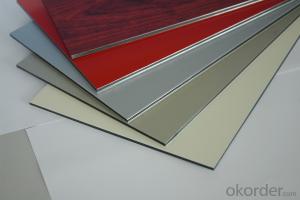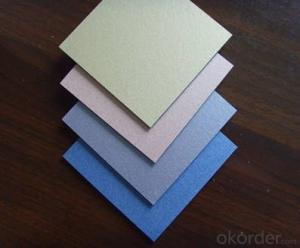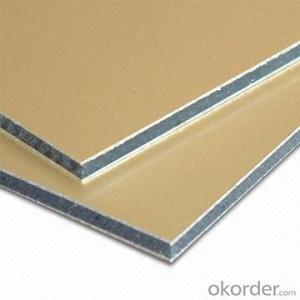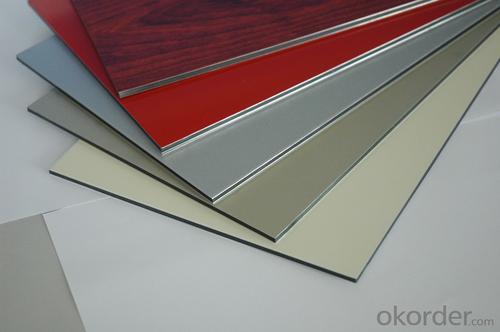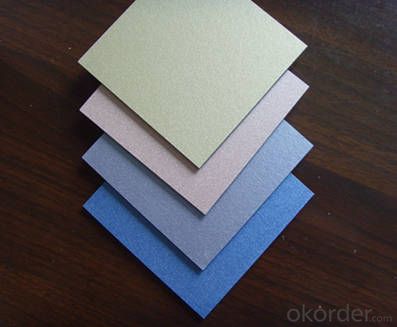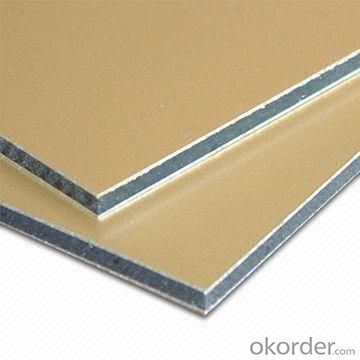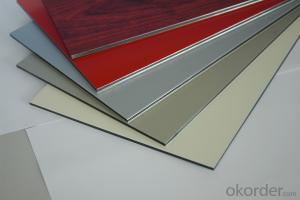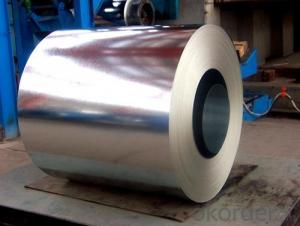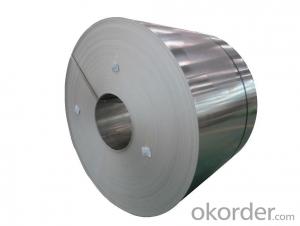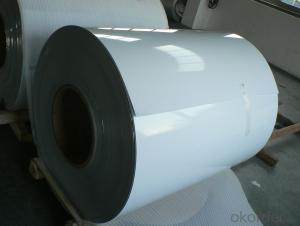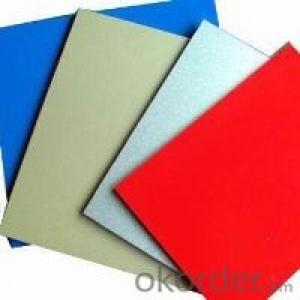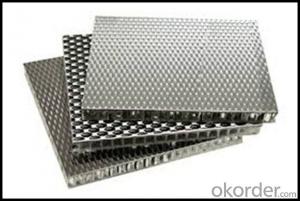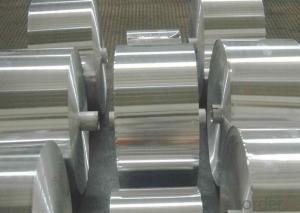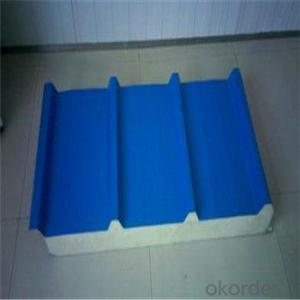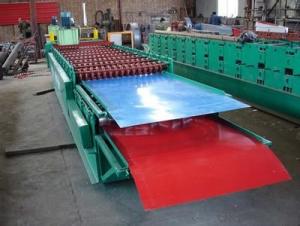Laminated Aluminum Steel Sheets - Prepainted Galvalume for Sandwich Panel
- Loading Port:
- Shanghai
- Payment Terms:
- TT OR LC
- Min Order Qty:
- 8 m.t.
- Supply Capability:
- 1000 m.t./month
OKorder Service Pledge
OKorder Financial Service
You Might Also Like
Specification
Structure of Aluminium Prepainted Galvalume for Sandwich Pannel Description:
Coated aluminum coil/sheet are of a wide range of colors, which gives wonderful appearance no matter in residential and commercial constructions of great exhibition centers.
The coated aluminum coil/sheet have been widely used in the fields of construction and decoration( garage doors, ceiling etc.), electronic appliances, lighting decoration, air-condition air pipes, sandwich panels and drainages etc.
Main Features of the Aluminium Prepainted Galvalume for Sandwich Pannel:
1) High flexibility
2) Impact resistance
3) Excellent weather-proof durability
4) Anti-ultraviolet
5) High erosion resist
Images of Aluminium Prepainted Galvalume for Sandwich Pannel:
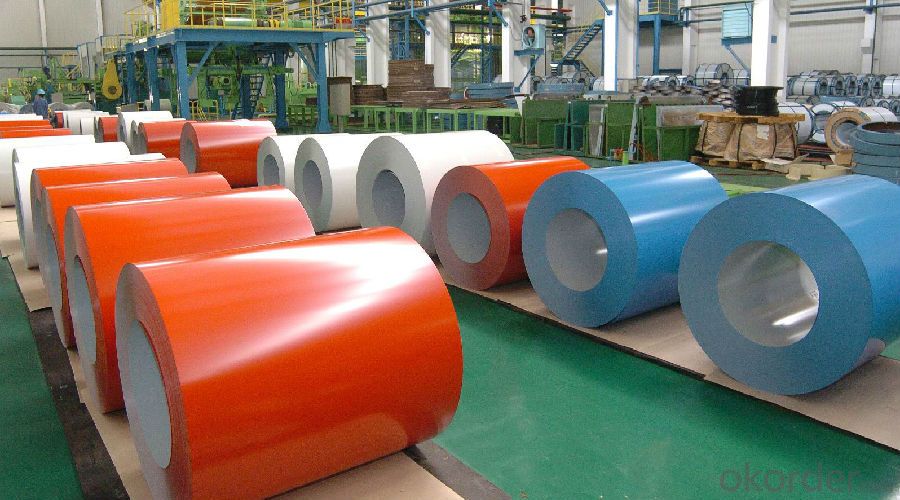
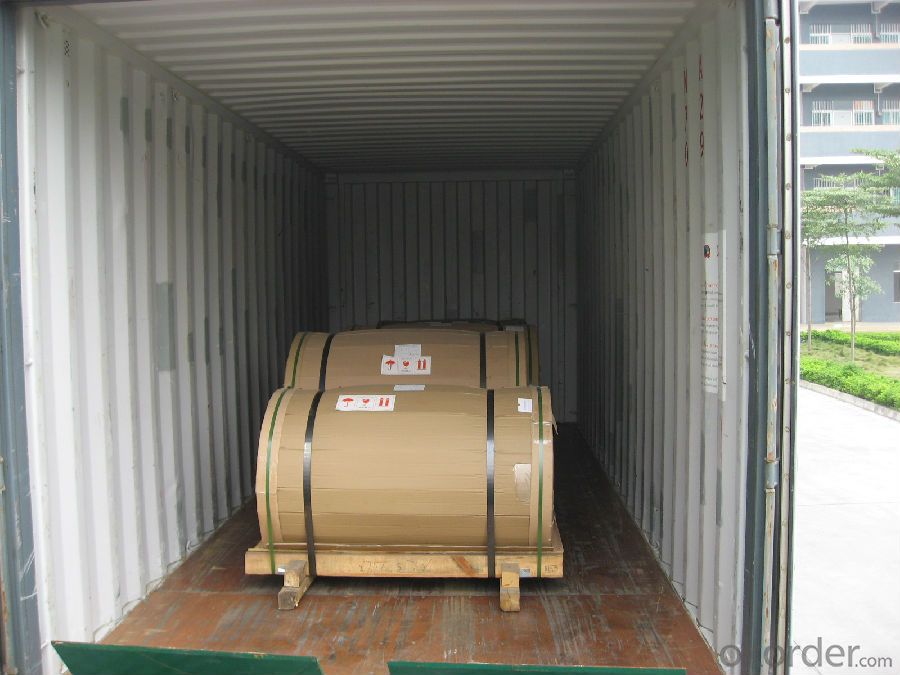
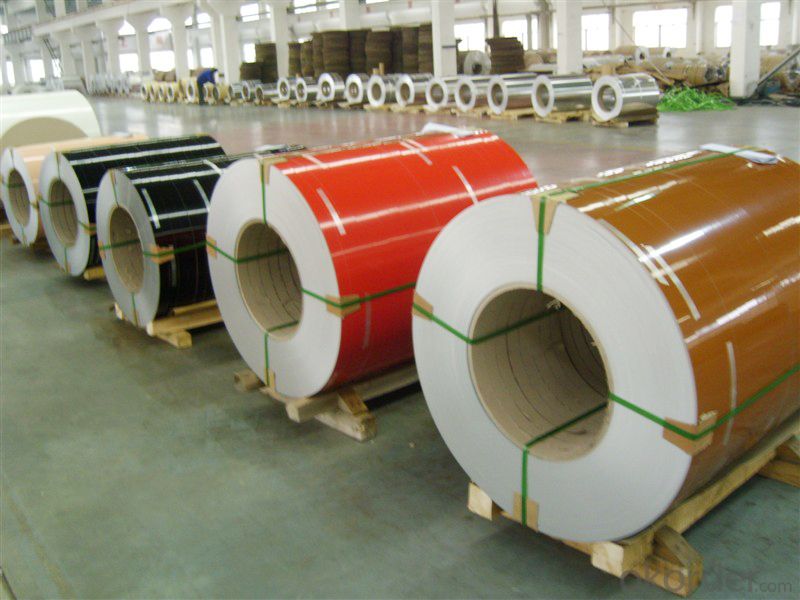
Aluminium Prepainted Galvalume for Sandwich PannelSpecification:
Alloy | A1100,A3003,A1050,A8011 etc |
Temper | H16,H18,H24 |
Thickness | From 0.024mm to 1.2mm |
Width | Standard width:1240mm |
Special width:1300mm,1520mm,1570mm,1595mm | |
Diameter | Standard dia:1200mm |
Interior dia:150mm,405mm,505mm | |
Weight | 2.5 T/coil,3.0 T/coil |
Coating | PE, PVDF, AC |
Surface | Embossed, mill finish, coated |
Color | AS to code RAL |
Gloss | 10-90%(EN ISO-2813:1994) |
Coating Thickness | PE: more than 18 micron |
PVDF: more than 25 micron | |
Coating Hardness (pencil resistance) | More than 2h |
Coating adhesion | 5J(EN ISO-2409:1994) |
Impact Resistance | No peeling or cracking(50 kg/cm,ASTMD-2794:1993) |
Flexibility (T-bend) | 2T |
MEK resistance | More than 100 |
FAQ:
a.What is monthly capacity
---CNBM is one stated own company and our monthly capacity is about 2000tons.
b. Now which countries do you export your goods?
---Now we export to South East Asia,Africa, North America,South America ect.
- Q: Q. Calculate the number of aluminium ions present in 0.051 g of aluminium oxide.( Hint: The mass of an ion is the same as that of an atom of the same element. Atomic mass of Al = 27 u) Please Explain each and every step!!!Thankx..A lot !!
- The formula for aluminium oxide is Al2O3 Its molecular weight is 2*27+3*16= 54+48 =102 Now, 102g of Al2O3 contains 2*6.023*10^23 number of Al ions so 1g contains (2*6.023*10^23)/102 number of Al ions so 0.051g Al2O3 contain (2*6.023*10^23)/102 *0.051 number of Al ions which is equal to 6.023*10^23*10^-3 = 6.023*10^20 number of Al ions(Answer)
- Q: Are aluminum sheets suitable for use in food processing or storage?
- Yes, aluminum sheets are suitable for use in food processing or storage. Aluminum is a non-toxic and non-reactive metal, making it ideal for direct contact with food. It provides a protective barrier against light, oxygen, and moisture, which helps to maintain the quality and freshness of food. Additionally, aluminum sheets are lightweight, durable, and can be easily cleaned, making them a popular choice in the food industry.
- Q: Can 101 aluminum sheets be anodized?
- Yes, 101 aluminum sheets can be anodized. Anodizing is a process that creates a protective oxide layer on the surface of aluminum, enhancing its corrosion resistance and durability. It can be applied to various grades of aluminum, including 101, to achieve desired finishes and provide additional protection. Anodizing can be done through various methods, such as chromic acid anodizing, sulfuric acid anodizing, or hardcoat anodizing, depending on the specific requirements and desired results. Therefore, 101 aluminum sheets can certainly undergo anodizing processes.
- Q: Can aluminum sheets be bent without breaking?
- Yes, aluminum sheets can be bent without breaking. Aluminum is a highly malleable metal, which means it can be easily shaped and bent without fracturing or breaking. However, the degree of bendability may vary based on the thickness and alloy composition of the aluminum sheet.
- Q: How much is a square inch of a millimeter aluminum plate?
- Make a supplement to the answer on the first floorSo-called:1 lines, when referring to pure aluminum, that is, aluminum content is not less than 99%., weight 2.71 kg / square meterThe 3 Series refers to manganese as the main alloying element, that is, aluminum manganese alloy.
- Q: What is the typical tensile strength of aluminum sheets?
- The typical tensile strength of aluminum sheets can vary depending on the specific alloy and temper, but it is generally in the range of 20,000 to 45,000 pounds per square inch (psi).
- Q: What is the typical formability of aluminum sheets?
- The typical formability of aluminum sheets is high, as aluminum has excellent ductility and can be easily shaped into various forms without cracking or breaking.
- Q: How does my world Pocket Monster mod aluminum plate synthesize?
- To dig the Elven blood machine at the Pocket Monster Center
- Q: This question asks whether it is possible to utilize stamped or embossed aluminum sheets for a specific project.
- <p>Yes, you can use stamped or embossed aluminum sheets in your project. These sheets are known for their strength, durability, and lightweight properties, making them ideal for various applications such as construction, automotive, and aerospace. Stamped aluminum sheets are formed by pressing the material into a specific shape, while embossed sheets have a raised pattern. Both types offer design flexibility and can be customized to meet specific project requirements. Ensure that the aluminum sheets you select meet the necessary specifications for your project, such as thickness, strength, and finish.</p>
- Q: Characteristics of anodized aluminium plate
- (1) good processing: anodized aluminum decorative strong, moderate hardness, easy bending forming, continuous high-speed, convenient and direct processing into products, no need for complicated surface treatment, greatly shorten the production cycle and reduce production cost.(2) good weather resistance: standard thickness of oxide film (3 m) anodized aluminum plate, indoor use for a long time, no discoloration, no corrosion, no oxidation, no rust. Anodized aluminum oxide film (10 m) can be used outdoors, and can be exposed to sunlight for a long time without discoloration.
Send your message to us
Laminated Aluminum Steel Sheets - Prepainted Galvalume for Sandwich Panel
- Loading Port:
- Shanghai
- Payment Terms:
- TT OR LC
- Min Order Qty:
- 8 m.t.
- Supply Capability:
- 1000 m.t./month
OKorder Service Pledge
OKorder Financial Service
Similar products
Hot products
Hot Searches
Related keywords
